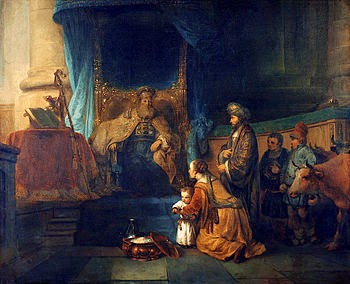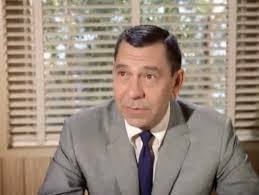February 22, 2014
Cathedral Church of St. Paul
The Very Rev. Jeanne Finan
BEAR SEASON
Mark 1:9-15
In those days Jesus came from Nazareth of Galilee and was baptized by John in the Jordan. And just as he was coming up out of the water, he saw the heavens torn apart and the Spirit descending like a dove on him. And a voice came from heaven, "You are my Son, the Beloved; with you I am well pleased."
And the Spirit immediately drove him out into the wilderness. He was in the wilderness forty days, tempted by Satan; and he was with the wild beasts; and the angels waited on him.
Now after John was arrested, Jesus came to Galilee, proclaiming the good news of God, and saying, "The time is fulfilled, and the kingdom of God has come near; repent, and believe in the good news."
On Ash Wednesday,
we began our journey into Lent.
But I really think Lent began on Shrove Tuesday.
We gathered in this nave and sang.
I mean we really sang.
People of all ages and preferences
called out numbers from the hymnal
and Mark Howe played and we sang.
The nave was full--
of people and of music and of great joy.
Afterwards
some hurried straight downstairs
to pancakes and maple syrup and bacon and sausage.
Because you see, while we were upstairs singing
there was another crew downstairs,
setting out silverware and flipping pancakes and frying up sausage
and getting the dishwasher geared up--
making ready.
Getting ready to practice what we preach about loving and serving others.
Did I mention that the entire church was filled with glorious smells
of those pancakes getting done just right,
to that bacon crisping?
An incense everyone can live with!
After the hymn sing, a few of us went out into the cold,
into the Memorial Garden where Anthony had set up a metal fire pit
and we set a great bundle of dried palms on fire.
We stood there as they burned into ash.
Ashes.
For our Ash Wednesday service.
Remember that you are dust
and to dust you shall return.
Shrove Tuesday and Ash Wednesday are, to me,
the double doors into Lent.
We embrace all that is delicious,
and then we let it go.
We embrace how much we enjoy life
and then we acknowledge
that yes, we know life is very short.
Repent.
This is Jesus talking here in Mark’s gospel.
What does repent mean?
Essentially it means CHANGE.
Turn around. Go a different way.
Find a new door that will open your heart.
Speaking of doors,
ome of you may have seen the video I posted on my Facebook page this week---
the one with the bears?
This video was made in North Carolina, sent to me by a friend,
shot from a second story balcony overlooking the driveway.
Now in the driveway is our friend’s brand new Honda CRV.
And she’s shooting this video to show off their new car
and then, enter on the scene
these four bear cubs.
Not little tiny bear cubs
but more like teenager bear cubs.
Two of them immediately bound up the steps onto the deck
just below where she is standing.
But the other two go right to the brand new Honda CRV.
And guess what?
A bear can open an unlocked car door.
I kid you not.
One of the bear cubs immediately,
opens the car door--
and climbs inside.
Climbs inside their brand new car.
And then the second cub
climbs inside.
And then the two cubs up on the deck look down
and it’s as if they say,
“Hey! What are you guys doing? That looks like fun!”
And down they go
and a third cub climbs into the car
and the fourth one is just about to hop aboard
when the owner of the car,
the husband of the woman making the video,
just can’t take it any longer
and he comes bounding out of the back door,
door slamming behind him,
and the bears start coming out of that car
like clowns exiting a circus car.
Out they come and out of the driveway
and back across the road towards the woods.
And then,
and then the man
(he must be insane!!)
goes down the steps towards the car--
the bears have now turned and are watching him--
he goes to the car door and sticks his head into the car.
My brothers and sisters in Christ,
I don’t care how much Jesus loves you,
do not stick your head into a car to check if there are any more bears
still in your car!
The car must be bear free
because he slams the car door shut and
looks over at the bears
as if to say,
‘I win.”
And at that moment,
the largest of the bear cubs starts running right towards him.
Have you ever seen a human being fly up a flight of stairs?!!
It can happen!
He quickly realized that
So what on earth do bears have to do with Lent?
Lent is a season to remind us of the bears.
The bears in our lives that come out of nowhere.
The bears that surprise us, that shock us,
that throw us off balance.
Sometimes we believe we have created an impenetrable and safe fortress
to surround us and those we love--
no one can harm us.
But then we learn that some bears
are far more clever
than we ever imagined.
The bears open the door
and take their place in the driver’s seat.
The place where we thought only we sat.
We realize we have lost control.
We probably never really had control
but we thought we did.
Those bears are not named Papa and Mama and Baby bear.
These bears are a medical diagnosis we did not want,
the breakup and loss of a relationship that we believed was forever,
a spiral into an old addiction.
or even
someone we love moving on to a new adventure--
without us.
And yes, we can take a run at chasing the bears away--
and sometimes that works, that’s helpful--
but sometimes the bears turn around
and chase right after us.
Bears are fast.
Lent is a good season to be mindful of the bears.
To pay attention to those things in our lives
that we can’t control.
I know for some of you,
it was quite a surprise to learn
that our Priest Associate Diane
is leaving the Cathedral in April.
It is hard to let go of people who have become a vital part of the life
of a community.
Change is difficult
even when a decision might be for the best,
it doesn’t make it less difficult.
Even before Diane’s decision,
a parishioner said to me,
“It feels like the Cathedral has been in transition for ever.”
That comment took me to my bookshelf
where I pulled out William Bridges’ book,
THE WAY OF TRANSITION.
It was on my bookshelf but I had never read it.
And I thought,
I better read this book
and get some help on how to move the Cathedral out of transition.
Only what I discovered as I read
is that we never move out of transition.
That is impossible.
Because we are always in transition.
We are always changing.
The challenge is to accept,
and yes, even to welcome, change.
We need to learn to step away from our fears--
yes, there may be some bears out there
but we will never get to enjoy the ride
if we lock ourself in our house.
God is constantly calling us to change,
to accept challenges
that are outside of our comfort zone.
Diane has made a decision
to involve herself more fully
in her ministry with Kids4Peace.
That decision changes things for Diane
and for us.
That decision changes things for Jesus--
and for us.
When Jesus calls us to “repent”
maybe what he is saying is,
“Come on in.
The waters of change are just fine,
the temperature is just right.
Well, just right after you’ve been in the water for awhile!”
Change is not the bear.
Our fears of change are the bears.
Back in Advent, I had the gift of reading a manuscript,
loaned to me by a friend.
The manuscript is titled
Good News, Bad News (According to Mark).
It's pretty magnificent.
I am re-reading the manuscript in Lent.
As I read this week, the line that struck me was this:
We don’t walk into the kingdom without the hope of something better.
We don’t walk into the kingdom without the hope of something better.
Lent is the season that calls us to keep walking.
Bears or no bears,
keep walking.
Keep walking.























































